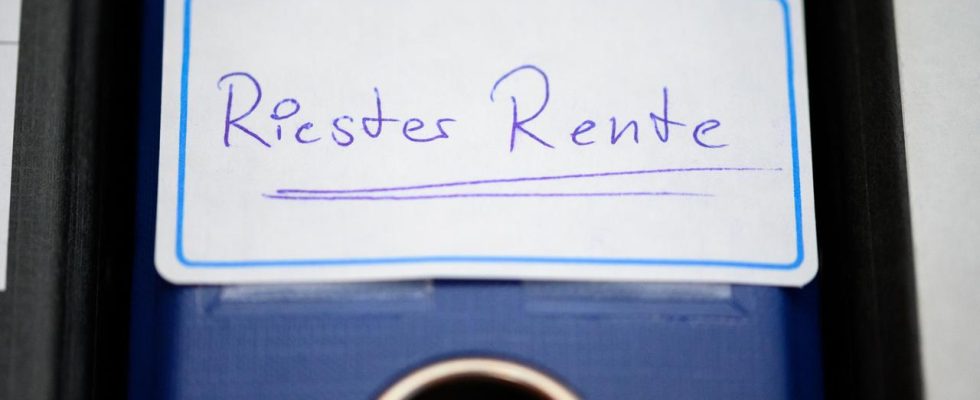In the future, there will be new ways of providing for old age, both privately and with government funding. A group of experts presented proposals for a reform of private old-age provision. The Riester pension is also under the microscope.
There are currently almost 16 million contracts – and the trend is falling. The Riester pension seemed unattractive to many – despite state subsidies: On the one hand, only low interest rates beckoned for a long time, on the other hand, there were comparatively high costs. Therefore, there should be new framework conditions for future state funding.
This is based on proposals drawn up by a group of experts from the Federal Government headed by the Ministry of Finance. Nothing will change for anyone who already has a Riester contract – unless providers and investors agree on new conditions. For new contracts, however, some things could be different.
“We recommend fundamentally reforming private old-age provision,” says FDP politician Florian Toncar, Parliamentary State Secretary in the Federal Ministry of Finance. In recent months, he has headed a working group that included various ministries, business and trade union representatives, and consumer advocates.
Private old-age provision should become more attractive
The task: to reform the previous Riester pension in such a way that private old-age provision becomes more attractive. “The key thing for the focus group is that it ensures that more products come into question, that we also have products in which it is possible to get higher returns and, ultimately, higher pension payments and retirement benefits for investors.” , explains Toncar.
So far, the providers of government-subsidized Riester contracts have to guarantee 100 percent of the paid-in capital. That makes the contracts expensive. Limiting the guarantee to 80 percent, for example, could reduce costs and allow for riskier investments – although this also entails a risk of loss.
comparison platform should help with the selection
It is also proposed to promote private retirement savings accounts in which money is invested in funds, for example. The condition for the state subsidy is that the investors only convert the securities in these custody accounts into money when they retire. Basically, there should be more freedom – and with it more responsibility for everyone who makes private provision for old age.
For this reason, transparency should also be strengthened at the same time, says Toncar. “We want to facilitate the comparison between different competing products by creating a comparison platform, a comparison website, where the products have to be presented, so that we give investors an opportunity to compare the product features and also the product quality.”
Launch possibly early 2025
According to the working group’s proposals, state support itself should look something like it does today: it will continue to consist of a basic allowance that can be supplemented with child allowances. For career starters, there should be a bonus longer than before. Tax deduction options could also be expanded.
But none of this has been decided yet. The results of the commission are now presented to the cabinet. State Secretary Toncar hopes that they will then pass the Bundestag in the coming year and – at least in part – come into force at the beginning of 2025.
Not to be confused with Planned Stock Rent
A distinction must be made between Riester’s reform considerations and plans to stabilize statutory pension insurance through a so-called share pension. Money would also be invested in the capital market here, at least ten billion euros a year are currently being discussed. However, the income from these investments should flow into the statutory pension from the end of the 2030s and thus stabilize the contributions to the statutory pension insurance.

